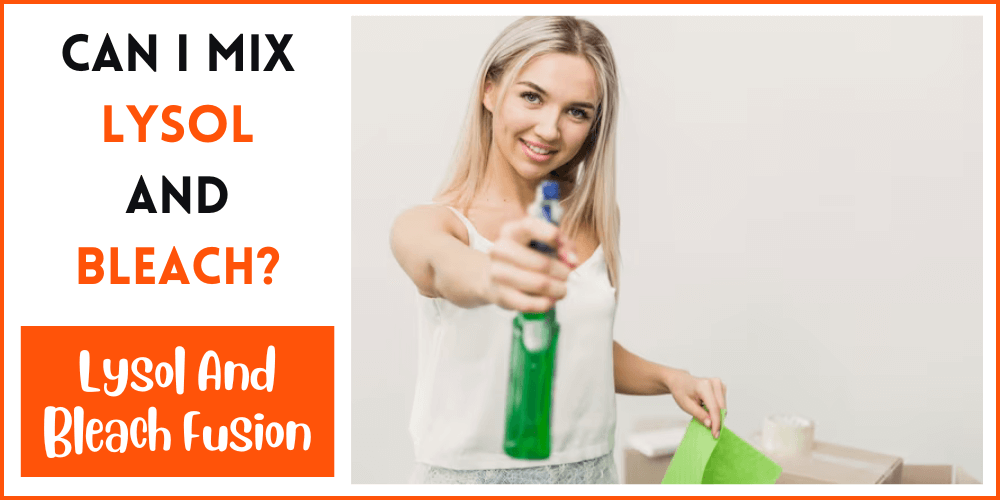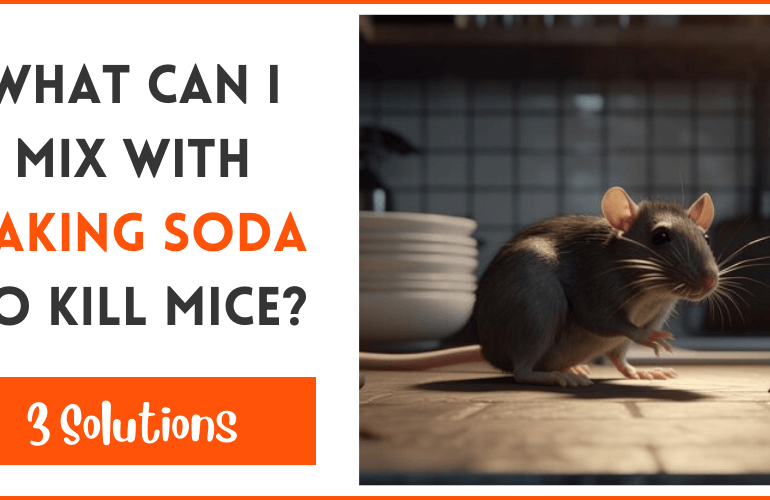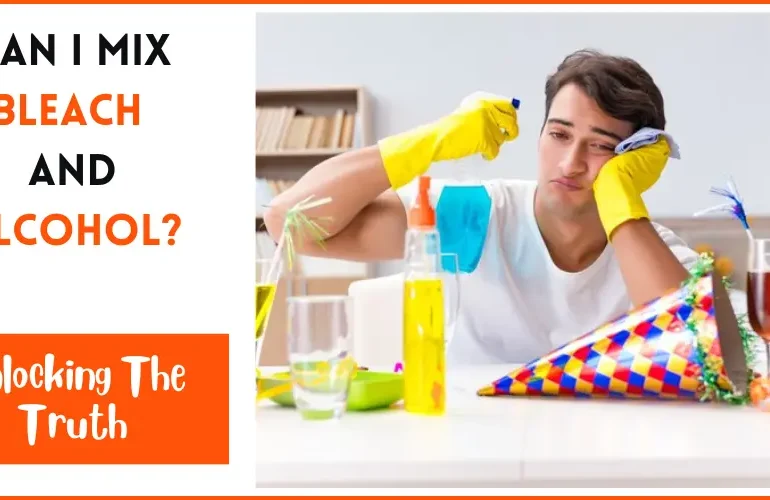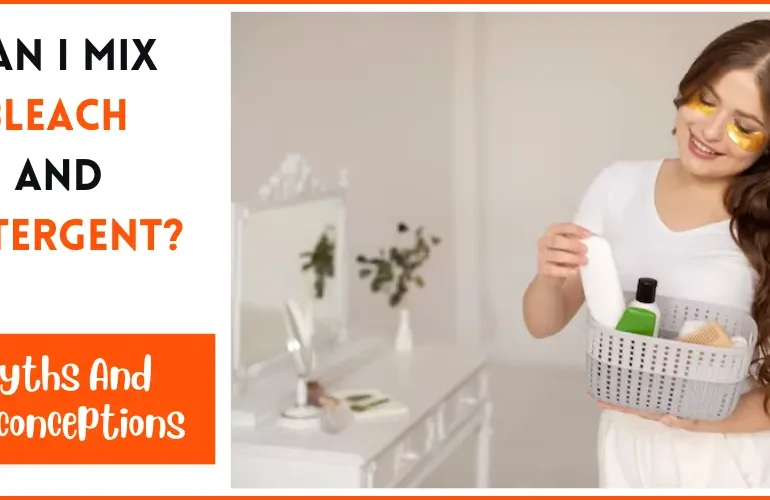

Cleaning and disinfecting are crucial for maintaining a healthy and safe environment. This becomes even more important when dealing with viruses and bacteria. Yet, it’s essential to understand the potential dangers that may arise when certain cleaning products are mixed. In this article, we will delve into the topic of Can I mix Lysol and bleach? We’ll explore the associated risks, real-life incidents, and safer alternatives. This information is crucial for ensuring your safety and well-being.
Can I Mix Lysol And Bleach?
To begin, let’s clarify what Lysol and bleach are. Lysol is a brand of disinfectant containing ammonium compounds, ethanol, and hydrogen peroxide. It incorporates various active ingredients to achieve its cleaning properties. Understanding these components is important for responsible use. Explore if can i mix Lysol and bleach. On the other hand, bleach is a powerful oxidizing agent that typically contains sodium hypochlorite. Both Lysol and bleach are effective in killing germs and viruses. However, they should never be mixed due to the potential chemical reactions that can occur.
Risks Associated With Mixing Lysol And Bleach
Mixing Lysol and bleach can lead to the release of toxic gases, such as chlorine gas, chloramine, or even potentially lethal phosgene gas. These gases can cause severe respiratory problems, eye irritation, nausea, and in some cases, can be fatal. It’s important to note that even small amounts of mixing these substances can have harmful effects on your health.
Real-Life Incidents
There have been reported incidents where individuals mixed Lysol and bleach. This resulted in serious health consequences. These incidents serve as a reminder of the importance of understanding the potential risks. Taking precautions is necessary to avoid such situations.
Alternatives To Mixing Lysol And Bleach
Fortunately, there are safer alternatives to consider when cleaning and disinfecting your surroundings. Many disinfectants on the market can kill germs and viruses without the need for mixing hazardous substances. Look for EPA-approved disinfectants formulated for various surfaces. Follow the instructions provided for effective use.
For those who prefer natural cleaning solutions, there are home remedies options available. Vinegar, hydrogen peroxide, and baking soda are effective alternatives for everyday cleaning. They can help meet your disinfecting needs. Consider using them instead of potentially hazardous combinations. These natural solutions may not be as potent as commercial disinfectants, so their effectiveness may vary. Keep this in mind when choosing your cleaning agents.
Safety Precautions
When using Lysol or bleach separately, it’s crucial to follow safety guidelines to minimize risks. Ensure proper ventilation by opening windows or using fans to circulate fresh air. Wear protective gear such as gloves and masks to prevent direct contact with the chemicals. Always read and follow the instructions on the product labels to ensure safe usage.
Related Guides:
What Happens If You Mix Bleach And Lysol?
One combination that should never be attempted is the mixture of bleach and Lysol. When these two strong cleaning products mix, they can make a really bad reaction that can hurt you. The mixture can release toxic chlorine gas. This gas can cause respiratory distress, eye irritation, and other health problems. We’ll delve deeper into the hazards and health risks associated with this combination.
How Long After Bleach Can I Use Lysol?
If you’ve recently used bleach for cleaning, it’s important to exercise caution before using Lysol. Proper ventilation is crucial to ensure the dissipation of any residual bleach fumes. It’s recommended to wait until the area is well-ventilated and the smell of bleach has dissipated before using Lysol. We’ll provide guidelines and suggestions. These will ensure your safety when transitioning from bleach to Lysol.
Is Lysol All-Purpose Bleach?
Both Lysol and bleach are effective cleaning agents. It’s important to understand that they serve different purposes. Lysol is not an all-purpose bleach. Lysol is a disinfectant that helps eliminate germs and bacteria on surfaces, while bleach is a powerful cleaner and sanitizer. We’ll clarify the differences between Lysol and bleach and outline their recommended uses.
Final Thoughts:
Mixing these substances can lead to hazardous chemical reactions and pose serious health risks. It is crucial to prioritize safety and explore alternative cleaning options that are effective and safe for use. It is very important to know about the dangers and be careful to stay safe. This ensures we can maintain a clean and healthy environment while protecting ourselves and our loved ones.
The answer to the question “Can I mix Lysol and bleach?” is a resounding no. When it comes to cleaning products, safety should always be a top priority. Mixing Lysol and bleach is not only ineffective but can also be extremely dangerous. It’s essential to follow safety guidelines and avoid mixing these chemicals. We encourage you to prioritize your well-being and the well-being of those around you by using cleaning products as directed. Let’s create a clean and safe environment without compromising our health.
Sources:
- By Joon Min, Is it safe to mix Lysol and bleach? Does the mixture clean more effectively or not? Posted 4 Years Ago.



